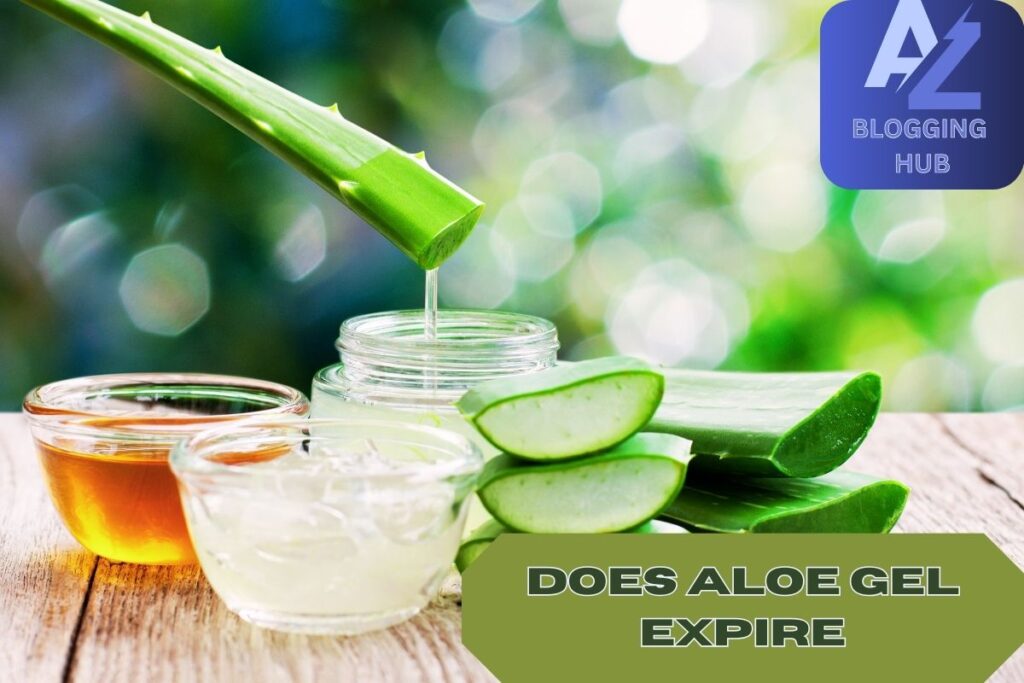- Does Aloe Gel Expire? The Truth About Aloe Vera Gel Shelf Life
- How Long Does Aloe Gel Last? Understanding Its Shelf Life
- Does Aloe Gel Expire in the Fridge?
- Aloe Vera Gel Expiry Date: What to Look For
- Does Freezing Affect Aloe Vera Gel?
- How to Extract Aloe Vera Gel: A Step-by-Step Guide
- What Is Aloe Vera Gel? Understanding Its Properties
- Does Glycerin Preserve Aloe Vera?
- Why Did Aloe Vera Gel Turn Purple in the Fridge?
- Conclusion
- FAQ's
Does Aloe Gel Expire? The Truth About Aloe Vera Gel Shelf Life
Aloe vera gel has become a household staple due to its soothing and healing properties. Whether it’s for calming sunburns, moisturizing the skin, or treating minor wounds, aloe vera gel is a go-to natural remedy. But does aloe gel expire? In this comprehensive guide, we’ll delve into the shelf life of aloe vera gel, how to store it properly, and the signs that indicate if it has gone wrong. We’ll also offer practical tips to help extend its freshness and efficacy.
- Does Aloe Gel Expire? The Truth About Aloe Vera Gel Shelf Life
- How Long Does Aloe Gel Last? Understanding Its Shelf Life
- Does Aloe Gel Expire in the Fridge?
- Aloe Vera Gel Expiry Date: What to Look For
- Does Freezing Affect Aloe Vera Gel?
- How to Extract Aloe Vera Gel: A Step-by-Step Guide
- What Is Aloe Vera Gel? Understanding Its Properties
- Does Glycerin Preserve Aloe Vera?
- Why Did Aloe Vera Gel Turn Purple in the Fridge?
- Conclusion
- FAQ's
How Long Does Aloe Gel Last? Understanding Its Shelf Life
When considering how long aloe gel expires, it’s crucial to differentiate between fresh, store-bought, and homemade gel.
Unopened Store-Bought Aloe Vera Gel
An unopened bottle of 100% pure aloe vera gel generally lasts up to 12 months past its manufacturing date. To preserve its freshness best, keep the bottle in a cool, dark place, such as a pantry or refrigerator. For more detailed information, check out Aloe Vera Shelf Life.
Opened Store-Bought Aloe Vera Gel
Once opened, aloe vera gel should ideally be used within six months. This period can vary based on storage conditions. Always refrigerate the gel and store it in an airtight container to prevent contamination and oxidation.
Homemade Aloe Vera Gel
Freshly made aloe vera gel, derived from aloe leaves, has a shorter shelf life. If kept in the refrigerator, it’s best used within one to two weeks. For longer storage, you can freeze it for up to six months. More tips on freezing aloe vera gel can be found here.
Does Aloe Gel Expire in the Fridge?
Does aloe gel expire in the fridge? Yes, aloe vera gel does expire, but refrigeration significantly prolongs its usability. Storing aloe vera gel in the refrigerator slows down the degradation of its components and reduces bacterial growth.
Why Refrigeration Matters
Refrigeration keeps the gel cool, which helps maintain its consistency, color, and effectiveness. The cold environment slows down the breakdown of essential vitamins and minerals, ensuring the gel remains potent for longer. For more information, see Refrigerating Aloe Vera Gel.
Signs of Spoilage
Even in the fridge, watch for signs of spoilage, such as discoloration, an off smell, or a change in texture (e.g., becoming watery or lumpy). These indicate that the gel has gone wrong and should be discarded.
Aloe Vera Gel Expiry Date: What to Look For
Understanding the aloe vera gel expiry date is essential for safe use. Most store-bought gels come with a printed expiration date on the packaging, which indicates when the product is expected to remain effective and secure.
Reading Expiry Dates
The expiry date is usually on the container’s bottom or side. If it needs to be visible, consult the product packaging or the manufacturer’s website for more details. Using aloe gel past this date may reduce its effectiveness and increase the risk of skin irritation.
Storage Tips for Prolonging Shelf Life
- Keep it cool: Store aloe vera gel in a cool, dark place away from direct sunlight and heat sources.
- Use airtight containers: Airtight containers prevent oxidation and contamination, extending the gel’s shelf life.
- Clean tools: Use clean tools to scoop out the gel, avoiding direct contact with your fingers to reduce bacterial risk.
Does Freezing Affect Aloe Vera Gel?
Does freezing affect aloe vera gel? When done correctly, freezing can effectively extend the shelf life of aloe vera gel and help maintain its properties.
How to Freeze Aloe Vera Gel
To freeze aloe vera gel:
- Scoop the gel: Extract it from the aloe vera leaf and place it in a blender.
- Blend until smooth: Blend the gel until it reaches a smooth consistency.
- Pour into ice cube trays: Pour the blended gel into ice cube trays and freeze.
- Transfer to a container: Transfer the aloe vera cubes to an airtight container or freezer bag once frozen.
Frozen aloe vera gel can last up to six months. Remove a cube, thaw it, and use it as needed. For additional tips, see Freezing Aloe Vera Gel.
Benefits of Freezing
Freezing preserves the gel’s potency and prevents bacterial growth. It also provides pre-measured portions of aloe vera gel for easy use.
How to Extract Aloe Vera Gel: A Step-by-Step Guide
Knowing how to extract aloe vera gel from the plant ensures a fresh supply whenever you need it. Here’s a simple guide:
- Choose a healthy leaf: Select a thick, healthy leaf from the base of the aloe vera plant.
- Cut the leaf: Use a sharp knife to cut the leaf close to the base.
- Drain the resin: Place the cut leaf upright in a cup for 10-15 minutes to drain the yellow resin, which can irritate the skin.
- Peel the leaf: Use a knife to remove the serrated edges and peel off the skin from one side of the leaf.
- Scoop the gel: Use a spoon to scoop out the clear gel.
- Store the gel: Place the gel in an airtight container and refrigerate.
For more detailed instructions, visit Extracting Aloe Vera Gel.
What Is Aloe Vera Gel? Understanding Its Properties
What is aloe vera gel? It is a natural substance extracted from the leaves of the aloe vera plant. Known for its soothing, moisturizing, and healing properties, the gel contains water, vitamins, minerals, enzymes, and amino acids that offer various skin and hair benefits.
Benefits of Aloe Vera Gel
- Soothes sunburn: Aloe vera gel cools and helps heal sunburned skin.
- Moisturizes skin: It hydrates without leaving a greasy residue, making it suitable for all skin types.
- Heals wounds: Its antibacterial and anti-inflammatory properties aid in healing minor cuts and wounds.
- Treats acne: The gel’s anti-inflammatory properties help reduce acne and prevent future breakouts. For more on aloe benefits, check out Benefits of Aloe Vera Gel.
Does Glycerin Preserve Aloe Vera?
Does glycerin preserve aloe vera? Glycerin, a natural humectant, helps protect aloe vera gel by maintaining its moisture content and extending its shelf life.
How to Use Glycerin with Aloe Vera Gel
To use glycerin to preserve aloe vera gel:
- Extract the gel: Follow the earlier steps to extract fresh aloe vera gel.
- Mix with glycerin: Combine equal parts of aloe vera gel and glycerin in a blender.
- Store in an airtight container: Place the mixture in an airtight container and refrigerate.
This mixture can extend the gel’s shelf life to several weeks and enhance its moisturizing properties. For more information, visit Using Glycerin with Aloe Vera.
Why Did Aloe Vera Gel Turn Purple in the Fridge?
If your aloe vera gel turned purple in the fridge, it could be due to oxidation or contamination. Aloe vera gel is sensitive to temperature changes and air exposure, which can cause it to change color.
Preventing Discoloration
To prevent discoloration:
- Use airtight containers: Store aloe vera gel to minimize air exposure.
- Keep it cool: Store the gel in the refrigerator to slow the oxidation process.
- Monitor freshness: Regularly check the gel for any color, smell, or texture changes.
Discoloration doesn’t necessarily mean the gel is unsafe but may indicate it’s losing potency. For further details, check Aloe Vera Gel Discoloration.
Conclusion
Aloe vera gel is a versatile and beneficial product, but like all-natural substances, it has a shelf life. Understanding whether aloe gel expires and how to store it properly can help you maximize its healing properties. Whether using store-bought or homemade aloe vera gel, keep it cool, use airtight containers, and watch for signs of spoilage to ensure its freshness.
Following these tips and guidelines, you can confidently use aloe vera gel to soothe your skin, treat minor wounds, and enjoy its many other benefits. Remember, fresh is always best, so check expiration dates and storage conditions to keep your aloe vera gel in top shape.
FAQ’s
Q.Can I use expired aloe vera gel?
Using expired aloe vera gel is not recommended as it may have reduced effectiveness and could potentially cause skin irritation. Always check for signs of spoilage such as an off smell, discoloration, or changes in texture. Dispose of expired gel properly and purchase a fresh container for optimal results.
Q.How many years does aloe vera gel last?
Store-bought aloe vera gel can last up to 12 months if unopened and stored properly. Once opened, it should be used within six months. Homemade aloe vera gel typically lasts 1-2 weeks in the refrigerator and up to six months if frozen. Always check the expiration date and storage conditions to ensure freshness.
Q.How do you know if aloe vera has gone bad?
Signs that aloe vera gel has gone bad include discoloration, a foul smell, or a change in texture (such as becoming watery or lumpy). If you notice any of these changes, discard the gel to avoid potential skin irritation or reduced effectiveness.
Q.Does Forever Aloe Vera Gel expire?
Yes, Forever Aloe Vera Gel does expire. Like other aloe vera products, it has a shelf life indicated by an expiration date on the packaging. Ensure you follow storage instructions and check the expiry date to maintain the product’s effectiveness and safety.



